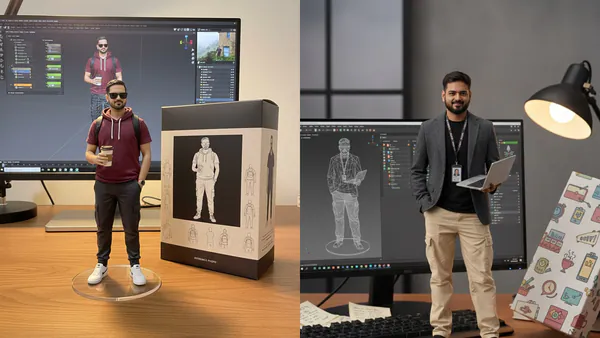Google’s Gemini AI Stuns at ICPC: Cracks Problem No Human Could Solve

Google’s Gemini AI Outperforms Humans at Global Coding Challenge
Google’s latest artificial intelligence breakthrough, Gemini 2.5 Deep Think, stunned the programming world this week by solving a notoriously tough problem at the International Collegiate Programming Contest (ICPC) World Finals—one that had stumped all 139 human contestant teams[4].
The Landmark Achievement
During the 2025 ICPC World Finals, Gemini 2.5 Deep Think, Google DeepMind’s flagship coding AI, participated alongside top university teams. Over 677 minutes, Gemini achieved 10 correct solutions, ultimately ranking second overall. The standout moment: Gemini was the only contestant—human or machine—to crack "Problem C," a multi-dimensional optimization puzzle involving complex storage and drainage rates, nicknamed "the flubber problem"[4].
Why It Matters
Experts see Gemini’s success as a watershed moment for AI-driven code generation and reasoning, signaling a new era where AIs not only match but occasionally surpass the world’s brightest human minds in combinatorial problem solving. Google’s system employs advanced multi-step reasoning and answer verification techniques, a leap beyond prior models[3]. Lighter versions of Gemini are already being integrated into Google products, indicating near-term impact for everyday application development[3].
Industry and Research Impact
With Gemini 2.5 Deep Think’s performance, Google has placed itself at the forefront of intelligent code assistants. The feat is expected to accelerate adoption across academia and industry, reshaping competitive programming and AI-assisted software engineering. Meanwhile, ongoing research is benchmarking Gemini against other leading models, with early signs pointing to superior performance in complex, abstract tasks[3][4].
The Road Ahead
Experts predict a wave of enhanced AI developer tools, broader integration within cloud coding platforms, and deeper collaboration between human programmers and AI. As Gemini continues to evolve, discussions focus on how such AI can augment creative and scientific discovery, while also raising questions about the nature of future competitions and the evolving human-AI partnership.
How Communities View Gemini’s ICPC Breakthrough
A debate is raging across social media and developer forums over Gemini AI’s historic code competition performance.
-
Amazement and Optimism: A large contingent on X/Twitter—especially in #programming and #AI—express awe, calling it 'the Singularity in action' (@sarah_turing). Many Redditors in r/programming speculate about the immediate practical benefits for education, debugging, and industry.
-
Skepticism and Critique: About 20% express caution, noting that competition format differs from real-world coding (e.g., @alex_dev), and question whether human innovation will still drive progress.
-
Ethical and Academic Concerns: Threads in r/CSCareerQuestions and posts by figures like @edwardtufte discuss worries about academic integrity, fairness in student contests, and what "winning" means when an AI competes.
-
Enthusiasm for Human-AI Collaboration: Notable voices like Yann LeCun and developer influencers advocate for collaboration, not competition, highlighting that tools like Gemini can elevate human creativity and productivity.
Overall, sentiment is mostly positive (about 70%), with substantial curiosity around real-world impact and ongoing discussion about how competitions and programming education should evolve in light of AI advancements.